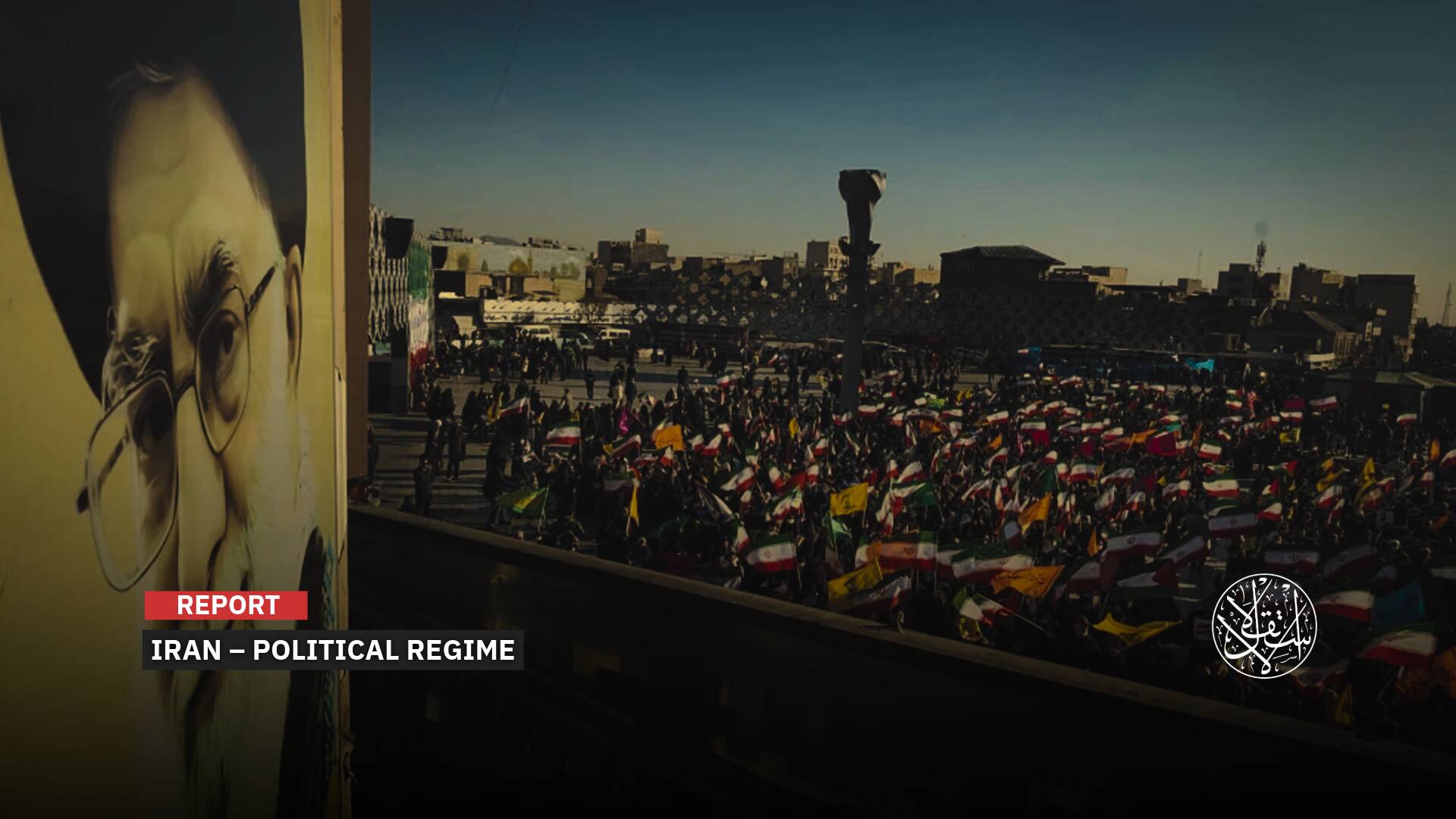Fall of Assad, Destruction of Hezbollah: Impact on Region's Drug Trade

The Syrian opposition dismantled drug factories tied to Assad, destroying massive quantities of narcotics.
Syrian regime leader Bashar al-Assad and Lebanese Hezbollah Secretary-General Hassan Nasrallah were not merely political figures but also prominent names in the drug trade.
Over the past decade, they became the world’s largest producers and exporters of narcotics, earning Assad the title “Drug Emperor of the Middle East” and Nasrallah “The Captagon King.”
The fate of the drug trade in the Middle East is now in question after the downfall of Assad and the destruction of Hezbollah, along with the death of Nasrallah, whose era witnessed an unprecedented flow of narcotics into the Arab world.
Hezbollah’s annual income from drug trafficking reached $1 billion, while Assad’s regime reportedly made around $1.8 billion yearly. Under his rule, Syria became a hub for producing and exporting Captagon globally, as described by the World Bank.
The Captagon Axis
The alliance between Hezbollah and the Syrian regime to export narcotics was formed in 2012 when Hezbollah intervened to help Assad suppress the Syrian revolution. Financially drained from the war, both parties turned to drug production and smuggling.
In 2012, Hezbollah began establishing secret production units and factories in Syria to manufacture Captagon. Before this, the group had focused on taxing suppliers and distributors or protecting major producers and smugglers in exchange for a share of the profits.
Captagon, the trade name for Fenethylline, is a stimulant from the amphetamine family. Banned from pharmacies in 1986, it is often manufactured as white pills resembling medicine tablets, containing chemicals with potent effects on the central nervous system.
Over the years, with cooperation from the Syrian regime, the Fourth Division led by Maher al-Assad (Bashar's brother), and Iranian militias, Hezbollah transformed Syria into the world’s largest producer of Captagon.
According to the British government in 2023, Syria accounted for approximately 80% of global Captagon production. The report noted that Maher al-Assad personally oversaw this trade, which had an export value of $5.7 billion in 2021.
Iranian militias joined Hezbollah and the Syrian regime to form trafficking networks that extended across the Middle East. Drugs were transported from al-Qusayr in Homs countryside and border areas in Rif Dimashq to cities in eastern Syria, particularly Deir ez-Zor.
From there, the drugs were smuggled into Iraq and other countries. However, in the past two years, Hezbollah established makeshift production units in Deir ez-Zor to boost output, reduce transportation costs, and secure shipments from the perilous routes leading to Iraq.
In March 2024, the Syrian Observatory for Human Rights (SOHR) reported the establishment of seven factories in the region. It also revealed that Iranian-backed militias had started cultivating cannabis on land owned by displaced individuals in Sa’lu and az-Zabari, east of Deir ez-Zor.
The Observatory confirmed that Iranian militias involved in drug production and trafficking included Lebanese Hezbollah, Iraqi Hezbollah, the Iranian Revolutionary Guard Corps (IRGC), Asa'ib Ahl al-Haq, al-Abdal militia (affiliated with Iraq’s Popular Mobilization Forces), the National Defense Forces, and the Fourth Division.
According to very reliable SOHR sources, “Lebanese and Iranian experts supervise the manufacture of narcotics and plantation of hashish in areas under the control of Iranian-backed militias in Deir Ezzor city and countryside.”
Meanwhile, Hezbollah took charge of transporting production presses from its strongholds on the Lebanese-Syrian border to Deir ez-Zor.
Other militias played roles in procuring raw materials, providing protection, ensuring logistics and transportation, and promoting the drugs, as per SOHR.

Breaking the Crescent
Regarding the state of the drug trade in the region, the situation has drastically changed in both countries. The borders stretching from Lebanese and Syrian territories to Iraq and Iran have effectively been severed following the downfall of Bashar al-Assad’s regime, marking a significant shift from the past.
In Syria, activists shared videos on social media after the fall of the regime, revealing Captagon production facilities overseen by Maher al-Assad. These sites contained massive quantities of narcotic pills.
After taking control of the country, Syrian opposition forces destroyed the Captagon factories and their raw materials, signaling a clear move to eradicate this industry and dismantle smuggling routes linking Lebanon, Syria, and Iraq.
In his latest statement on narcotics, Abu Mohammad al-Golani, leader of the Syrian opposition forces that overthrew the Assad regime, declared during a speech at the Umayyad Mosque on December 8, 2024, that “under Bashar al-Assad, Syria became a Captagon factory.”
For Hezbollah, the situation appears different. On October 23, 2024, Voice of America (VOA) reported, citing former U.S. officials, that their sources in Europe had noted an increase in the group's drug smuggling activities across the continent.
They stated that Hezbollah, weakened by the war, is urgently ramping up smuggling operations amid its worsening “financial crisis.”
Thomas Cindric, a retired special agent of the U.S. Justice Department’s Drug Enforcement Administration who served at the DEA from 1996 to 2018, told VOA that people associated with the illegal drug trade also have reported to him an uptick of Hezbollah-related drug trafficking activity in Europe in the past 10 days.
“When you are getting hit the way that Hezbollah is getting hit right now by the Israelis, the only way you can make money exponentially fast is with illegal drugs,” Cindric said.
According to a November 15 report by Alhurra, “Hezbollah’s drug-related activities are expected to surge in the coming period, with an anticipated rise in smuggling operations, either from Lebanon or through its networks in Latin America, to replenish its dwindling funds.”
Observers predict a decline in the flow of drugs to Jordan, Iraq, and Gulf states following the halt in production from Syrian territories and the severing of the land route—known as the “Shiite Crescent”—linking Lebanon, Syria, Iraq, and Iran. This is expected to result in a marked downturn in the regional drug trade.
Flooding the World
The network comprising Hezbollah and the former Syrian regime was responsible for smuggling large quantities of amphetamine pills to many countries worldwide. However, Gulf markets, particularly Saudi Arabia, were the primary target. Since 2014, Saudi authorities have confiscated over 700 million Captagon pills.
In 2023, the United States imposed sanctions on dozens of entities, companies, and individuals involved in producing and smuggling drugs from Syria and Lebanon. Among them were Hassan Muhammad Daqqou, dubbed the “King” or “Emperor” of Captagon, and Nouh Zaiter, both with close ties to Hezbollah.
Sanctions also targeted several Syrian figures allied with the Assad family, including family members themselves. These included Wassim and Samer Assad, as well as Khaled Qaddur and Ammar Abu Zreik, all major producers of narcotics in Syria.
Drugs manufactured in Syria are smuggled to neighboring countries such as Jordan, Lebanon, and Iraq, in addition to significant markets in the Gulf.
In recent years, these substances have posed a serious threat to the security and stability of these nations, according to CNBC on December 9, 2024. The report highlighted that Captagon is often smuggled through Europe before being redirected to Gulf countries.
Saudi Arabia has taken stringent measures to combat the drug trade within its borders.
Jordan also plays a critical role in the fight against Captagon smuggling, as it is one of the countries most affected by this phenomenon. Over the years, Jordanian authorities have reported seizing millions of pills smuggled across the border with Syria.

The European Union has started focusing its attention on the Captagon trade. A report from the European Monitoring Centre for Drugs and Drug Addiction revealed that Brussels bloc nations have become a primary gateway for the transit of large quantities of amphetamine pills destined for the Middle East.
In Europe, while substantial quantities of Captagon have been seized on various occasions, the drug itself does not enjoy significant popularity.
Italian and German drug investigators were surprised at the volumes discovered early on, questioning their intended destinations, according to the report.
Investigations revealed that rerouting drugs through Europe is part of a strategy to deceive customs officials in Saudi Arabia and Dubai. Once the shipments arrive in Europe, they are repackaged and redirected southward to Gulf countries.
This indicates that Captagon production in Syria extends beyond drug trafficking—it is part of a covert economic system that served as a critical source of unofficial funding. Today, the collapse of the Syrian regime and Hezbollah’s destabilization raises questions about the future of this trade.
Sources
- Syria Economic Monitor
- SOHR exclusive | Iranian-backed militias plant hashish and run seven narcotic-manufacturing laboratories in Deir Ezzor city and countryside
- Exclusive: Facing cash crunch, Hezbollah seeks to boost illegal drug sales in Europe
- Exclusive: Hezbollah running out of money amid Israeli bombardment
- New report shows Europe as key transhipment area for captagon bound for Arabian Peninsula
- How did Syria become a global center for Captagon production? [Arabic]
- Is Hezbollah seeking to rehabilitate its capabilities with drug money? [Arabic]











